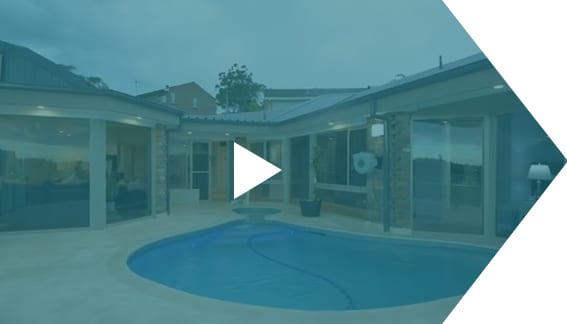Renovating a home can be one of the most rewarding experiences for a homeowner. Whether it’s refreshing an outdated bathroom, extending your home to accommodate a growing family, or adding a new level for increased functionality, renovations bring the opportunity to improve your quality of life and add value to your property.
However, major renovations are not DIY-friendly tasks. While painting walls or replacing light fittings may fall within your weekend capabilities, larger and structural home improvements should always be left to licensed professionals.
In this article, we explore why using licensed builders is essential when undertaking home renovations in Australia, particularly in cities like Sydney where strict building regulations apply. We’ll also cover common risks, when licences are required, insurance considerations, and how to choose the right builder for your project.

Why You Should Only Use Licensed Builders for Renovations
1. Professional Training and Accreditation
Licensed builders must meet strict education, experience, and competency requirements to gain their accreditation. This includes:
- Completing recognised qualifications (such as a Certificate IV in Building and Construction)
- Undertaking apprenticeships and industry placements
- Ongoing professional development to stay current with building codes and Australian Standards
This rigorous training ensures licensed builders are up to date with legal and safety obligations, structural requirements, and emerging trends in building technologies.
2. Compliance with Building Codes and Council Regulations
Every renovation must comply with state and national Building Codes, local council planning rules, and other legal obligations. A licensed builder understands:
- Zoning regulations
- Development Application (DA) requirements
- Complying Development Certificates (CDC)
- Building approvals and inspections
Working with a professional ensures your renovation is legally compliant, avoiding costly fines or rework if your home doesn’t meet the correct codes.
3. Protecting the Structural Integrity of Your Home
The structural integrity of your property is paramount. Renovations that affect load-bearing walls, foundations, plumbing, or roofing can compromise safety if not handled correctly.
Licensed builders understand:
- How to read and interpret engineering plans
- The impact of modifications on structural load paths
- Proper methods for reinforcing or replacing structural elements
They work closely with structural engineers, building designers, and inspectors to deliver safe and long-lasting results.
Dangers Involved in Home Renovations
Renovation projects, especially on older homes, can pose significant health and safety hazards. Without appropriate knowledge and protective measures, homeowners and unqualified trades may be exposed to serious risks.
1. Exposure to Dangerous Materials
Homes built prior to 1990 are likely to contain hazardous materials, including:
- Asbestos in ceilings, flooring, and cladding
- Lead paint in older painted surfaces
- Crystalline silica from concrete and brick dust
Only licensed professionals have the proper PPE (personal protective equipment), disposal training, and containment methods to handle these materials safely.
2. Electrical Hazards
Renovating around electrical wiring is inherently dangerous. Faulty electrical work can lead to:
- Electric shocks
- Short circuits and fire hazards
- Breaches of Australian wiring standards
Licensed builders work alongside certified electricians to isolate, redirect, and reconnect electrical systems safely.
3. Falls and Site Accidents
The risk of falls from ladders, scaffolding, and roofs is one of the leading causes of injury on renovation sites. Licensed builders:
- Use compliant scaffolding and harness systems
- Follow WHS (Work Health and Safety) procedures
- Ensure the worksite is secure and well-managed
These practices drastically reduce the risk of on-site injuries.
4. Tool and Equipment Safety
Professional builders have access to industrial-grade tools and know how to use them safely. These include:
- Demolition tools
- Concrete saws and nail guns
- Power sanders and pressure systems
Attempting DIY with such tools without training can result in serious harm or permanent injury.
When is a Home Building Licence Required in NSW?
In New South Wales (NSW), licensing is governed by NSW Fair Trading, and understanding when a licence is required is vital to staying compliant.
Licence is Required:
- Any structural building work (e.g., extensions, new floors, major repairs)
- Jobs over $5,000 in value (labour + materials)
- Bathroom, kitchen, and laundry renovations
- Installing windows, roofing, or bricklaying
- Waterproofing, rendering, or tiling large areas
- Projects that affect plumbing, drainage, or electrical systems
Licence is Not Required:
- Non-structural jobs under $5,000, such as:
- Painting and decorating
- Minor repairs and maintenance
- Installing shelves or curtain rods
- Painting and decorating
However, even for smaller jobs, using a qualified tradesperson is still recommended for the best results.
Carpenters Can Work Without Insurance (Up to $20,000):
In NSW, licensed carpenters can undertake carpentry projects up to $20,000 without providing Home Building Compensation (HBC) insurance, provided no structural works are involved.
Council Approval
Your builder can help determine if your project needs Council Development Approval (DA) or a Complying Development Certificate (CDC). These may apply depending on:
- Property zoning
- Heritage listing
- Bushfire or flood-prone zones
- Environmental impact
Never start work without proper permits, or you risk being forced to undo the renovations.
Why Insurance is Crucial
One of the greatest risks of using unlicensed trades is lack of insurance cover. Licensed builders are legally required to hold multiple forms of insurance to protect themselves, their workers, and your property.
1. Home Building Compensation (HBC) Cover
Previously known as Home Warranty Insurance, this protects homeowners if:
- The builder becomes insolvent
- The builder dies or disappears
- Builder fails to correct defects after repeated requests
It is mandatory for residential projects over $20,000, and it covers work for six years after completion.
2. Public Liability Insurance
Covers injury to third parties or property damage caused by the builder’s work. For example, if a scaffold falls and damages your neighbour’s car, you’re protected.
3. Professional Indemnity Insurance
Protects you from legal claims resulting from professional errors or negligence.
Example: If you’re a building designer and a design flaw in your plans leads to structural issues in a client’s building, they could sue you for the cost of repairs. Professional Indemnity Insurance would help cover your legal fees and any compensation awarded.
4. Workers’ Compensation
Required by law to cover the builder’s employees in case of injury or illness sustained while working on your property.
Risks of Using Unlicensed Builders
Choosing the cheapest quote or trusting an unlicensed “mate” to do the work can backfire dramatically. The hidden dangers include:
- No warranties or guarantees for workmanship
- Inability to access insurance claims if problems arise
- Ineligible for legal recourse under Fair Trading
- Increased likelihood of poor-quality or incomplete work
- Risk of injury, fire, or structural failure
You may even be forced to demolish illegal structures at your own cost if they breach council codes.
Pro tip: Always verify a builder’s licence through the NSW Fair Trading Licence Check.
How to Choose the Right Licensed Builder
Here’s what to look for when hiring a professional builder for your home renovation:
1. Check Their Licence
Ask for their builder’s licence number and cross-reference it with Fair Trading’s public register. Make sure it covers the type of work you’re hiring for.
2. Ask for Insurance Certificates
Request copies of:
- Home Building Compensation Certificate
- Public Liability Insurance
- Workers’ Compensation
3. Review Past Projects
Reputable builders will proudly show you:
- Photo portfolios
- Before-and-after galleries
- Client testimonials and reviews
4. Understand the Contract
Always have a written building contract that outlines:
- Scope of work
- Timeline and payment stages
- Materials to be used
- Dispute resolution process
For work over $20,000, it is compulsory to use a written contract under NSW law.
Extend a Home – Quality Licensed Builders in Sydney
At Extend a Home, we understand that your home is your sanctuary. With over 80 years of combined experience, our team of fully licensed and insured builders delivers:
- Ground-floor extensions
- First-floor additions
- Major renovations and custom builds
We work closely with building designers, certifiers, and council officers to ensure your renovation is compliant, safe, and exceeds your expectations.
Why Sydney Homeowners Trust Extend a Home:
- Compliant with National Construction Code (NCC)
- Transparent contracts and fixed pricing
- HBC Insurance and public liability cover
- 5-star customer service
We help bring your vision to life with expert advice, premium craftsmanship, and safe building practices.
Frequently Asked Questions (FAQs)
1. What is the difference between a builder and a handyman?
A handyman handles minor repair jobs under $5,000 that are not structural. A licensed builder manages larger, structural renovation projects and must meet legal and insurance requirements.
2. Can I get insurance if I use an unlicensed builder?
No. Insurance providers typically will not offer coverage for work done by unlicensed trades. You also won’t be protected under HBC insurance.
3. What happens if I build without council approval?
Unauthorised building work may result in fines, forced demolition, or loss of property resale value. Always consult with your builder to determine approval requirements.
4. Why do licensed builders cost more than unlicensed trades?
Licensed builders include insurance, compliance, quality materials, and warranties in their costs. It’s a long-term investment in safety, durability, and peace of mind.
Conclusion
Your home is likely the biggest investment you’ll ever make. Don’t cut corners when it comes to renovations. Whether you’re adding a new room, revamping your kitchen, or expanding upwards, only a licensed builder has the qualifications, legal protection, and expertise to get the job done right.
Using a licensed builder isn’t just a smart choice, it’s often a legal requirement in New South Wales. Avoid costly mistakes, safety risks, and legal troubles by partnering with a team you can trust.
Contact Extend a Home today for a no-obligation consultation and discover how we can bring your renovation dreams to life, safely and professionally.
Contact Us Today
Don’t risk your family’s safety or your investment by choosing unlicensed builders.
Let the experts at Extend a Home handle your next renovation project with professionalism and peace of mind. Call us on 02 9736 3344 or contact us online for a free consultation and detailed quote.












